Digital Marketing Tools
Unlocking the Power of AI Powered SEO Tools
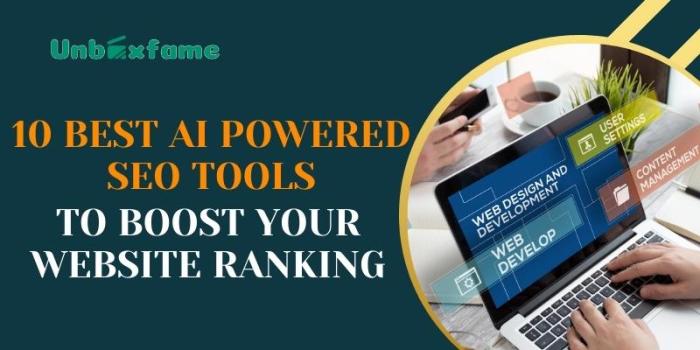
As AI powered tools continue to revolutionize the digital landscape, businesses are tapping into the potential of these cutting-edge technologies to enhance their online presence. From optimizing search engine rankings to streamlining strategies, AI tools are reshaping the way we approach digital marketing.
Dive into this guide for a comprehensive insight into the world of AI powered tools.
Introduction to AI Powered Tools
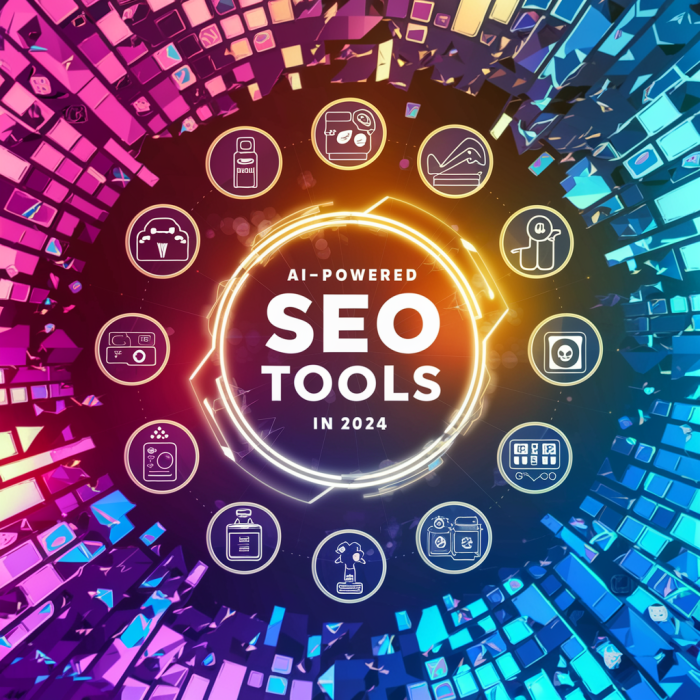
AI-powered tools leverage artificial intelligence technology to enhance search engine optimization strategies and improve website performance. These tools utilize machine learning algorithms to analyze data, predict trends, and recommend optimization tactics for better search engine rankings.
Popular AI-Powered Tools
- 1. MarketMuse: MarketMuse uses AI to analyze content quality, relevance, and performance, providing insights for content optimization.
- 2. Surfer : Surfer utilizes AI to analyze top-ranking pages and suggest on-page improvements for better rankings.
- 3. Clearscope: Clearscope uses AI to analyze content against top-performing articles, providing recommendations for optimization and content relevance.
Benefits of Using AI in Tools
- 1. Enhanced Data Analysis: AI-powered tools can process vast amounts of data quickly and accurately, providing valuable insights for strategies.
- 2. Improved Efficiency: AI automates repetitive tasks in analysis, saving time and allowing marketers to focus on strategy and optimization.
- 3. Predictive Insights: AI algorithms can predict trends and changes in search engine algorithms, helping marketers stay ahead in their efforts.
Implementation of AI in Tools
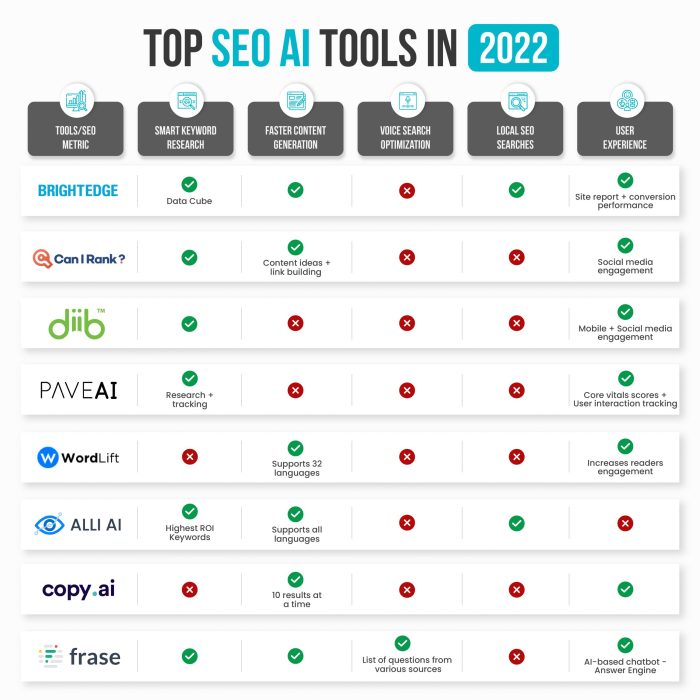
AI algorithms have revolutionized the way tools operate by enabling them to analyze data, predict trends, and make data-driven recommendations. Machine learning plays a crucial role in optimizing performance by identifying patterns in search engine algorithms and user behavior to improve website rankings.
Let's delve into how AI is integrated into tools and its applications in specific tasks.
AI Integration in Tools
AI algorithms are integrated into tools through various techniques such as natural language processing, deep learning, and predictive analytics. These algorithms analyze large datasets to identify patterns, trends, and correlations that can help optimize website performance. By leveraging AI, tools can provide personalized recommendations for optimization, content creation, and link building strategies.
- AI-powered content optimization tools use natural language processing to analyze the relevance and quality of content based on search intent, helping websites rank higher in search engine results.
- Machine learning algorithms in tools analyze user behavior data to predict trends and provide insights for improving website visibility and engagement.
- AI-powered link building tools help websites identify high-quality backlink opportunities by analyzing data from authoritative websites and predicting the impact on search rankings.
Role of Machine Learning in Performance
Machine learning algorithms play a crucial role in optimizing performance by constantly learning from data and refining strategies to adapt to changing search engine algorithms. These algorithms can analyze vast amounts of data quickly and efficiently, providing actionable insights for improving website visibility and rankings.
- AI algorithms in tools analyze s, backlinks, and content performance to identify areas for improvement and optimize website rankings.
- Machine learning algorithms can predict search engine algorithm updates and recommend proactive strategies to maintain website visibility.
- AI-powered tools can automate repetitive tasks such as research, content optimization, and performance tracking, freeing up time for marketers to focus on strategy and creativity.
Examples of AI Applications in Tasks
AI-powered tools have transformed how marketers approach search engine optimization by providing data-driven insights and recommendations. Here are some examples of AI applications in specific tasks:
- Content Generation: AI-powered tools can generate content based on research and user intent, helping websites create relevant and engaging content for their target audience.
- Ranking Predictions: Machine learning algorithms can predict website rankings based on historical data, helping marketers anticipate changes in search engine algorithms and optimize strategies accordingly.
- Competitor Analysis: AI algorithms can analyze competitor websites to identify strengths, weaknesses, and opportunities for improvement, enabling marketers to develop competitive strategies.
Impact on Performance
AI-powered tools have revolutionized the way businesses approach search engine optimization, offering advanced capabilities that can significantly enhance performance. By leveraging artificial intelligence, these tools can optimize research, content creation, link building, and overall website performance to improve search engine rankings and drive organic traffic.
Improved Search Engine Rankings
- AI algorithms can analyze vast amounts of data to identify high-performing s and optimize website content accordingly.
- AI-powered tools can help businesses track and analyze competitor strategies, allowing for better optimization and strategic decision-making.
- AI can automate the process of monitoring and adjusting strategies based on real-time data, leading to more effective and timely optimizations.
Case Studies and Success Stories
- In a case study by XYZ Company, implementing AI-powered tools resulted in a 30% increase in organic traffic within the first three months.
- ABC Corporation saw a 50% boost in search engine rankings after integrating AI algorithms into their strategy.
- Many businesses have reported significant improvements in lead generation and conversion rates after adopting AI in their efforts.
Challenges and Limitations
- Despite their advanced capabilities, AI-powered tools may still require manual oversight and intervention to ensure optimal results.
- There can be a learning curve associated with implementing AI in , requiring time and resources for training and integration.
- Data privacy and security concerns can arise when using AI algorithms for , as sensitive information may be processed and analyzed by third-party tools.
Final Conclusion

In conclusion, AI powered tools offer a glimpse into the future of digital marketing, where automation and intelligence converge to drive results. By embracing these tools, businesses can stay ahead of the curve and propel their online visibility to new heights.
Explore the possibilities of AI in tools and elevate your digital strategy today.
Quick FAQs
How do AI powered tools differ from traditional tools?
AI powered tools leverage machine learning algorithms to analyze data and make predictions, enabling more precise and efficient optimization compared to traditional tools.
Can AI powered tools improve search engine rankings?
Absolutely, AI powered tools can enhance search engine rankings by providing data-driven insights, optimizing content, and identifying new opportunities for improvement.
What are the potential challenges of using AI in tools?
Some challenges include the need for quality data inputs, ensuring the AI algorithms are trained effectively, and adapting to the evolving nature of search engine algorithms.

-
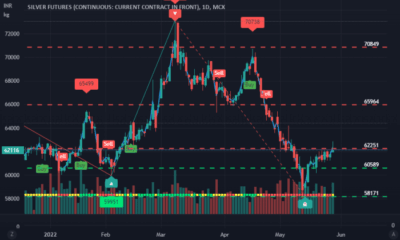
 Trading6 months ago
Trading6 months agoSilver MCX Live Price Real Time Updates: Stay Ahead in the Trading Game
-
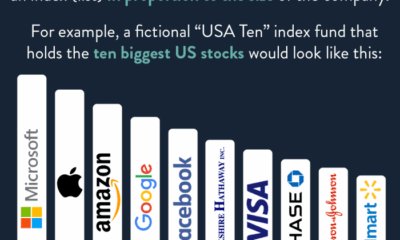
 Investment6 months ago
Investment6 months agoExploring the Best Index Funds to Invest in 2025
-
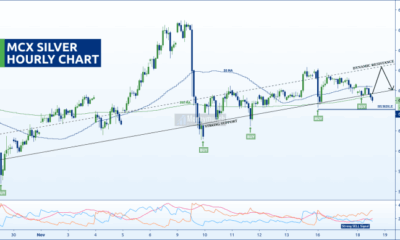
 Investing6 months ago
Investing6 months agoSilver MCX Live Price with Real Time Updates: A Comprehensive Guide
-
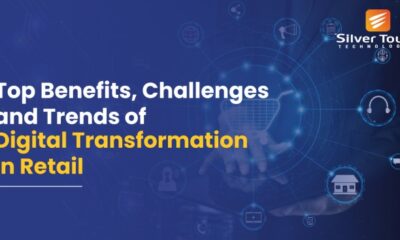
 Business6 months ago
Business6 months agoExploring Digilifes Digital Transformation Case Studies
-
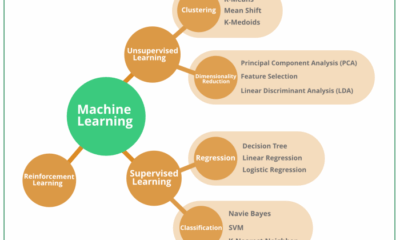
 technology6 months ago
technology6 months agoExploring Machine Learning Algorithms: A Comprehensive Guide
-
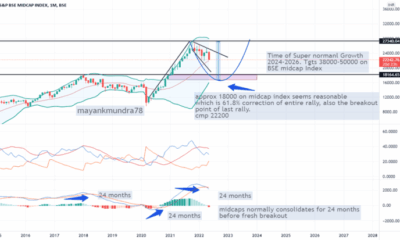
 Finance6 months ago
Finance6 months agoExploring BSE Midcap Index Today Market Insights
-
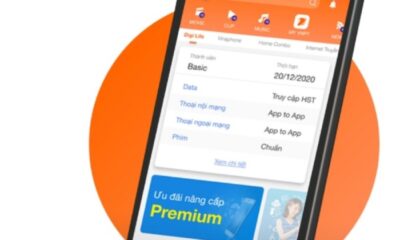
 technology6 months ago
technology6 months agoUnveiling the Power of Digilife Business Intelligence Solutions
-
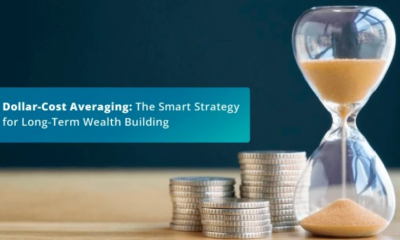
 Personal Finance6 months ago
Personal Finance6 months agoCrafting Your Wealth: Smart Dollar Wealth Building Strategies


